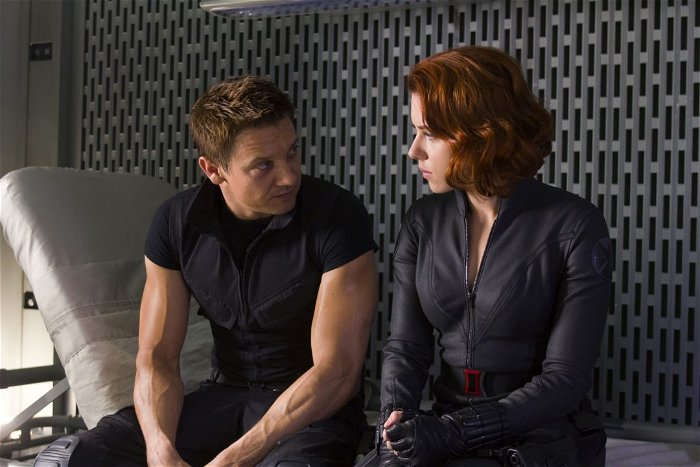Some people are very casual when it comes to entertainment. Others take it very seriously as fans, and examine every detail with consideration. When something doesn’t work out the way they want it to, they often times write blog posts or articles about how it angered them, using more emotion to back their reasoning than logic. The problem with this is that genre journalists are taking this too far, as if these writers and directors are personally attacking them through what they do with their fictional characters. The most recent catalyst is the rape scene between Sansa Stark and Ramsay Bolton in Game of Thrones.
There have been discussions all over the internet about the scene, most notable from The Mary Sue. Writer Jill Pantozzi said she and the rest of the feminist pop culture site will no longer cover anything that has to do with the series.
They’re not the only ones outraged. Other fans are saying that the rape was reducing Stark to a pawn, that there shouldn’t have been any rape scene or idea of rape at all, or that someone other than Bolton should have done the act. All of which are all terrible arguments against why it was a bad move. Yes, rape is bad and makes people uncomfortable. While it may not be necessary to include in a story as Pantozzi says, nothing is really necessary. It’s all a matter of storytelling. If the scene serves as pushing the plot further like through character development. Stark is doing this to possibly reclaim Winterfall, and Bolton is probably doing this to intimidate Theon, or whatever other reason may be for the writers putting this in. But fading to black would make rape seem less scary, and let’s be honest, if characters never had anything bad happen to them it would make a boring and terrible story to watch. After all, this is Game of Thrones.
With fans angry at the creative minds behind the hit HBO series, it’s not the first time they cried out about a woman being forced to do something against their own will. This is similar to when people used Twitter to argue Black Widow’s forced sterilization in The Avengers: Age of Ultron was sexist.
People said having Black Widow sterilized makes her infeminine, and “not able to have it all”, when in fact, it doesn’t. It was used as a tool to show that Black Widow is a strong character who has worked on overcoming her past, and still is. It makes her more human and less of a Mary Sue. Again, people on the internet were accusing Joss Whedon of doing bad things to characters that these people became emotionally attached to. Not to mention that sterilization is a real “women’s issue” that isn’t discussed enough. It’s no different to The X-Files’ Dana Scully who was infertile because of the cancer and alien abduction and more than half the characters played by Tatiana Maslany in Orphan Black because they are in fact clones. They’re all seen as beautiful, strong women, and the use of it is to develop characters.
It’s not just the big things, but there are small things that anger a community. Doctor Who fans are well known for being nit picky about everything. Fans are known to take the show a little too seriously.
While Steven Moffat, writer of Doctor Who has been known to not write female characters very well, fans will berate him for having the Eleventh Doctor refer to his companions Amy Pond and Clara “Oswin” Oswald as “girls”. In the Doctor’s defense, he’s over 1000 years old and both women are in their 20s, which makes them much younger and even maybe more like children in his perspective. Some people forget that though, and then rant and rave online about why it’s wrong.

When a writer or director make a story, it’s all a matter of storytelling. There’s no intentional malice against an audience member, there’s no hurt to a real person. It’s all done for fun, fiction, and ratings.
Some people don’t understand or subconsciously don’t recognize this, so when they write angry tweets or articles about some incident that the character faced, they write it as an emotional argument rather than a logical one. If someone could argue why logically Stark shouldn’t have been raped or why Black Widow shouldn’t have been sterilized then maybe there wouldn’t be such an issue. But people are too involved in the fictional lives of people who don’t exist.
There are theories as to why people get so emotionally attached to these characters we see in movies and on TV. Some say there’s a relationship formed with these people because they’re seen through our televisions at home on a regular basis or that typecasting is causing people to believe characters people are real. Either way it’s all interpersonal. We feel empathy and sorrow after seeing these people for so long who we relate to so well. This is becoming a problem when writers and journalists subconsciously or purposely put these connections and emotions into their stories.
There was a study done by researchers at Ohio State University in 2012 that found people who lose themselves in the realm of fictional characters in books become more like the fictional character in speech and behaviour. The phenomenon is called “experience-taking”, and is becoming prevalent in more than just books.
Writers shouldn’t put their favourite fictional characters on a pedestal out of reach from reality: they’re not reality. Fictional characters aren’t your best friends. They’re not real. When their creators do something that upsets their audience, genre journalists and writers shouldn’t address it as if their best friend has been cussed out at a high school brawl, full of emotional rage, but as a logical argument backed up by fact and reason.






